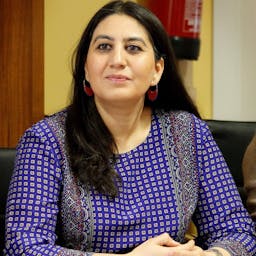Breaking barriers one sport at a time
May 28, 2019
Story
There has been no better time for Indian women in sports. We are out there to make history this year in Rio. Female wrestler Sakshi Malik just won her 1st bronze medal at the 2016 Rio games, opening India’s account in the medal bank. She is the first Indian female wrestler and the fourth Indian woman to win an Olympic medal.
PV Sindhu created history and became the first Indian woman shuttler to enter the final of Badminton singles in Olympics and while Dipa Karmakar didn’t win a medal in the traditional sense, she has won the hearts of a billion people by being India’s first gymnast at the summer games in 52 years. These young girls are not only breaking gender stereotypes but are also paving the way for others girls in India to take up sports as a profession.
You can’t be what you can’t see. For millions of young Indian girls, Sania Mirza, Saina Nehwal, Dipa Karmakar and the likes are no longer just names; they are great role models to look up to. These champions have used sports to break gender barriers and restrictions commonly placed on Indian girls and women.
Olympic medal winner Sakshi Malik was born in India’s Haryana state, where after a decade, its sex ratio finally crossed the 900 mark (sex ratio is the number of girls per 1,000 boys). For a long time, women were not allowed to take part in wrestling events in Haryana. Sakshi started training for wrestling at a young age. She remembers the locals berating her parents and telling them that their daughter would become undesirable to potential suitors if she continued to wrestle. It was not until 2002 that girls were allowed to train with boys in Haryana.
In my recent interview with professional tennis player, Sania Mirza (world ranked No. 1 in women’s doubles), she talks about the challenges she faced as a girl playing tennis in India “ When I started paying tennis 22 years ago, it was not a popular sport in India, especially for women. I used to have a hard time finding a court to practice in Hyderabad, which at that time was still a small city. A girl from Hyderabad picking up a tennis racket was unheard off. People used to make fun of my parents saying, “What do you think, she will become a Martina Hingis?” My mum used to reply “Yes, I do think she will play the Wimbledon one day”. People laughed it off”
“I also faced a lot of social stigmas, the society had a long list of what a girl should and should not do. People used to worry that I will become dark playing in the sun. Who will marry a dark-skinned girl?”
Sania Mirza has been very vocal and has successfully used her stardom to speak up against issues faced by women in sports. She has always been faced with questions related to her gender. According to Sania, how can people only worry about skin color when a child is trying to train for a sport and shows talent?
Sania Mirza was the only woman playing tennis professionally from such a young age, so she had to fight and beat a lot of odds. The fact that she became a star at a young age taught her that there is inequality in this world. More often than not parents of young girls in India tell them to focus on their studies or get married. A girl may be good in sports but that doesn’t matter. Sania strongly advocates that women need to educate themselves. They are not just baby-making machines! “We are supposed to be and we do belong here in the same world, outside of our homes that men do”.
And while a patriarchal society like India doesn’t like a woman being so opinionated, strong minded and strong spoken, Sania continues to live her life on her own terms. She is where she is because she has been true to herself.
Most Indians are obsessed with boy as a preferred child and cricket as their sport. These young women champions are killing two birds with one stone. It’s high time we Indians stop obsessing about just cricket as the prime sport and boys as our preferred child. Girls are soaring higher and higher and if they make up their minds, no patriarchal chains can hold them back from achieving their dreams, even if those are made of pots of Olympic gold!




